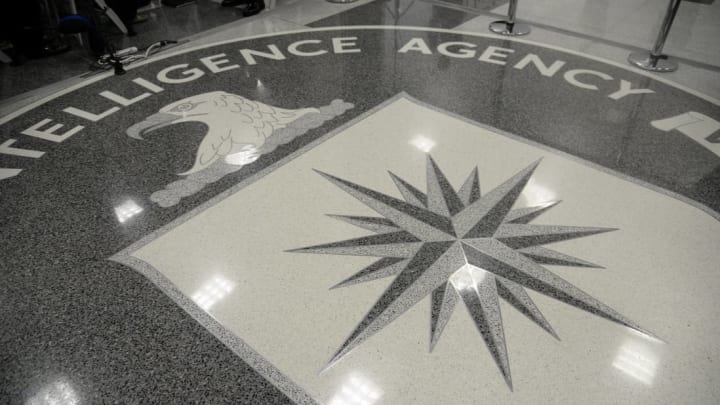Thanks to a request from Rep. Peter King (R-N.Y.), the Department of Defense and CIA have officially opened an investigation into Kathryn Bigelow’s movie about the killing of Osama bin Laden. King and others were concerned that the White House had leaked classified information to the filmmakers for the movie and wanted the CIA on the case.
But it’s far from the first time the government -- or the CIA itself – has gotten involved in the film industry. The FBI has a healthy track record of investigating actors, executives and even individual movies. For example, consider their response to the Steve McQueen heist film "The Thomas Crown Affair." When producers of the film -- then titled The Crown Caper -- asked to use an exterior shot of the agency's Boston headquarters, the FBI decided to investigate. According to McQueen's FBI file, revealed on The Vault website, they rejected the request after a thorough examination because of the movie's "outrageous portrayal of the FBI. That refusal joined their extensive file on McQueen, which also details threats against him.
But the CIA also has a long history of involvement with Hollywood. Through a program called “Operation Mockingbird" (detailed in a Carl Bernstein Rolling Stone article and several books), the CIA sought to influence various aspects of American media, bringing in various journalists and publishers to skew coverage of the Cold War. Another tentacle of Mockingbird involved Hollywood, ensuring that popular movies were made with the best interests of the government and protecting any unfavorable information from getting out.
Among the projects the CIA worked on was The Quiet American, an adaptation of Graham Greene’s Vietnam-set novel. Reports have said that the CIA worked to ensure that a bombing in the story is tied to Communist forces, even though the culprit in the book is implied to be an American. Greene was furious that the script -- written with advice from the CIA -- stripped out his anti-war message and decried it as "propaganda."
According to reports, the agency also got involved with other movies like 1984, doing everything from changing the script to adding racial diversity to make America seem more inclusive.
However, their greatest effort as part of Mockingbird may have been their extensive involvement in adapting George Orwell’s “Animal Farm” for the big screen. The agency worked hard to get the rights to the book, thinking they could turn the allegory into a tool against communism. However, changes were required to the original story, which equally criticized communism and capitalism. Instead, the CIA tweaked the script to make communism the clear enemy and changed the ending so the animals revolted against the now-powerful pigs, rather than humans.
Animation company Halas and Batchelor produced the film in England (some have speculated that the location was an attempt to deflect accusations of CIA involvement, but others think the agency just had connections in the production company) as an animated film, partly out of necessity. However, producers also worked to put Disney-like gags throughout the film to broaden its appeal and spread the message farther. The film was a hit with critics and the CIA was pleased, although it saw much opposition from fans of Orwell's book. Author Howard Beckerman would later tell the London Guardian that he felt Orwell would have “vetoed” any effort to produce the film had he still been alive.
Of course, there are theories that the CIA may have had an even more insidious role in filmmaking, as many have linked the agency to the death of screenwriter Gary DeVore. While working on a film about the U.S. invasion of Panama (also his directorial debut), DeVore went missing. His car and body were later found in an aqueduct. His wife, Wendy, would later tell reporters that DeVore had been disturbed with some of his research into the CIA’s involvement in the invasion and that he had seemed “under duress” during his final phone call with her. Many have speculated that the CIA framed his death as an accident in order to prevent the film from getting made, although there is no hard evidence.
